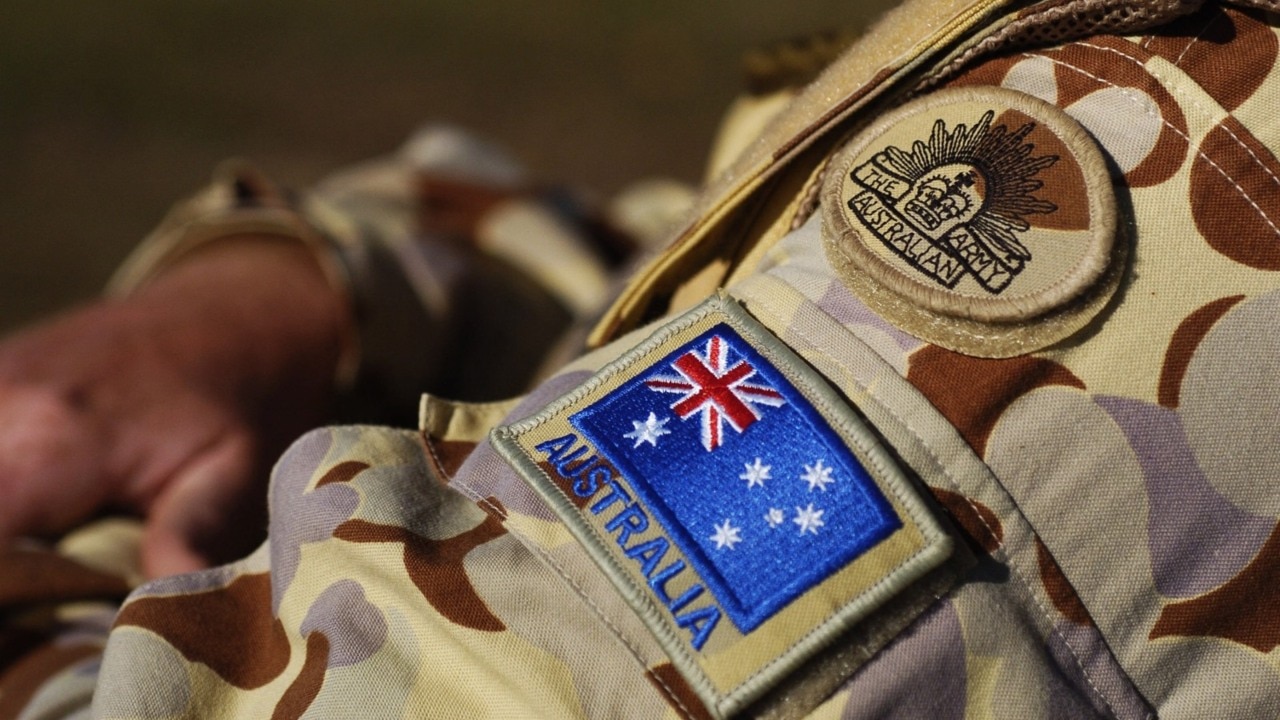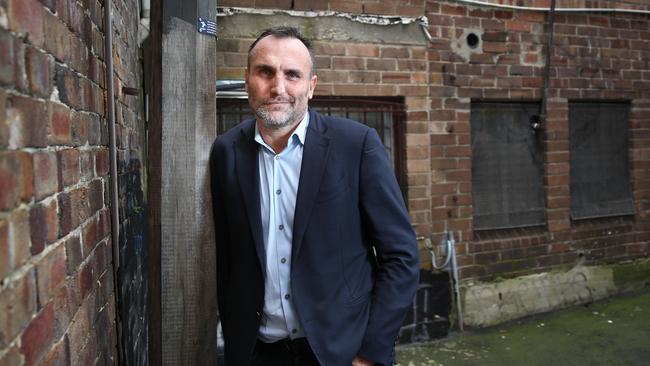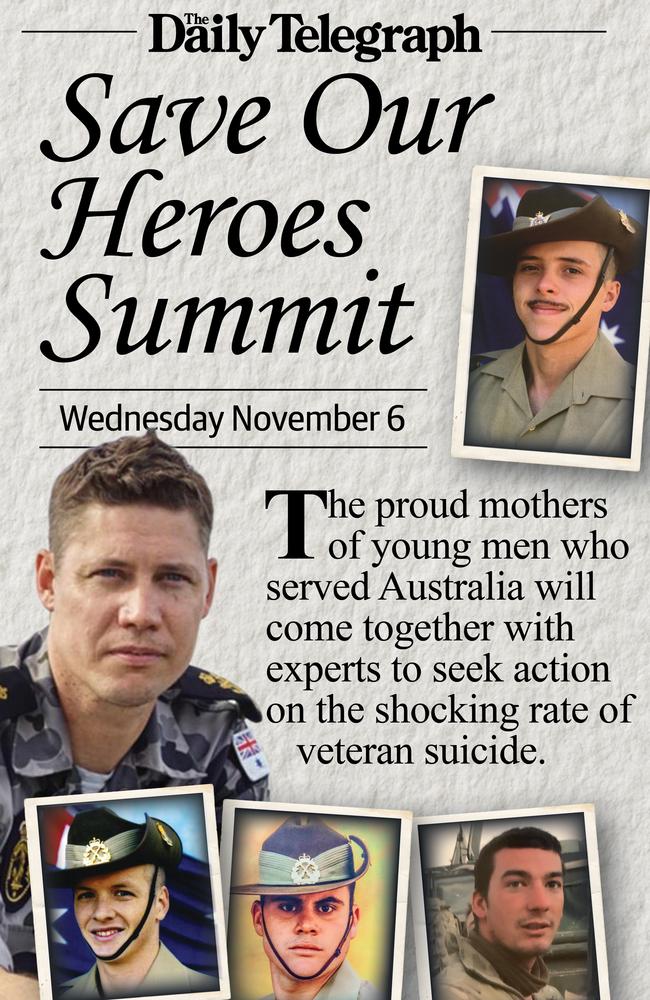Michael Ware: The war wounds you can’t see
Australia has been far too slow to acknowledge the pain and difficulties faced by soldiers returning home, writes Michael Ware.

Opinion
Don't miss out on the headlines from Opinion. Followed categories will be added to My News.
- ‘In tears’: Death sparks new memorial for suicided veterans
- Dad takes his own life after defence rejects pleas for help
- Daily Telegraph announces Save Our Heroes Summit
Why fight so hard to survive a war, only to return home and kill yourself?
That is what is happening. Here. In Australia. Today.
It is something our American allies know only too well. Roughly 22 US veterans are taking their own lives every 24 hours. Young vets from Iraq. Old vets from Vietnam. Those who have made millions. Those living on the streets.

It’s a heartbreaking phenomenon. One that here in Australia isn’t necessarily easy to see. The number here who kill themselves is tiny, compared to the tens of thousands who have served since 9/11.
But it’s a number far greater than we’d hope. Or can bear.
And, when you know the faces or hear the stories of the Aussies we’ve lost, then those same numbers suddenly start looking ominously large.
So, why is it happening?
It’s a riddle wrapped in pain. The answer to which, more often than not, is excruciatingly elusive. Unknowable.
There might even be, I often wonder, as many answers as there are diggers? As many possibilities as there are servicemen and women who fought for this country on hostile soil abroad?
I just don’t know. And I spent a decade as a journalist in those same wars myself and I still don’t have an answer. And that’s the point.
Because no one else really knows either. Not the Defence Force, not Veterans Affairs, not the doctors. We in Australia, despite 19 years of war, have been cruelly slow to acknowledge the problem, let alone figure out how to address it. Or how to arrest it.
Could that now be about to change? We shall see, in time.
What doesn’t change is the stain war leaves upon us. There have always been wounds you can see — and those you cannot.
Homer wrote of it in ancient Greece. So did Shakespeare.
The pain, I suspect, is the same now as it was then.
For we can never unsee the things we have seen.
Carrying these things within you can be harder, I think, for some Australian veterans.
Both Iraq and Afghanistan were unpopular conflicts among voters. But legitimate national security issues compelled us to commit our forces.
So, in many ways, these veterans fought wars often out of sight and out of mind of the Australian public.
In effect, they fought in silence. They mustn’t now be let to suffer in it.
The wars weren’t as seared into the public mind, into our collective consciousness, anywhere as near much as they were in the US. Almost every American knows someone — from family, school, work — who has been deployed.
In America, “thank you for your service,” is comfortably and commonly said to anyone in uniform.
Though such appreciation mightn’t solve anything, it does count for something. It means veterans are always part of the national conversation. It makes it easier to ask what’s going wrong with our vets and what can we do to help.
While our troops are serving it’s hard for them to speak; to put up their hand and admit they might need help. In battle-hardened military cultures like our own, to do so, can be a sign of weakness. A career ender.

You see, for many who have been to war, the “homecoming” can be just as lethal as the war itself.
To kill, to have people try to kill you, to have to wade through so much death you have to go to a dark, dark place in your soul. You have to detach from what’s around you if you want to get your job done.
It can be hard coming back from that, and sometimes not all of you makes it.
As if all of your parts now suddenly, somehow, don’t quite fit back in anymore. The calibrations all just fractions of what they should be.
Almost three million soldiers, sailors and air force personnel from the Western alliance have fought our Terror Wars. And still counting.
Asked on Sunday what he would say to Australian veterans about suicide, a long-serving US Navy SEAL stopped, sat quietly, then explained that most soldiers sign-up out of a sense of service.
“Tell them they’re duty isn’t over. They have a new mission. The mission is to stay alive.”
Michael Ware is a war correspondent who was one of the few Western journalists to live full-time in Iraq through the Gulf War. His first feature-length documentary, Only the Dead, was released in 2015. His series Uncensored with Michael Ware aired on National Geographic channel in 2017.
Lifeline 13 11 14
